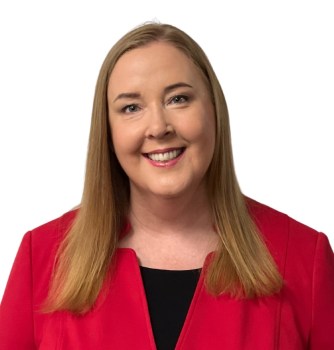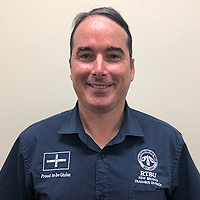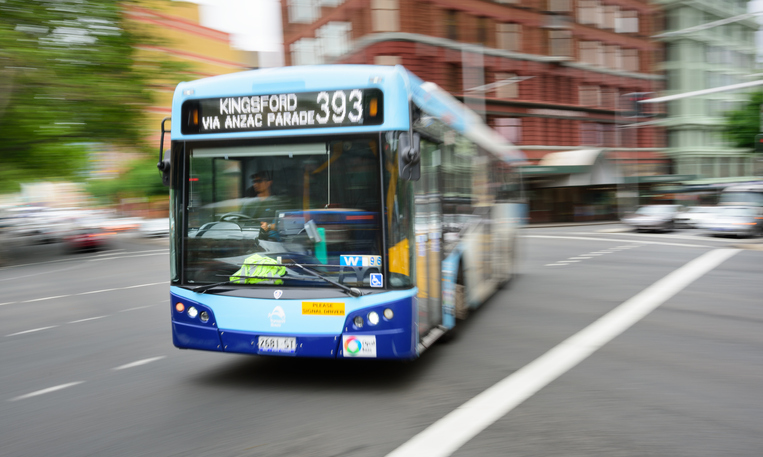Strengthening regulation of the bus industry is one of the key recommendations contained in a NSW Government report released Monday.
This includes “ensuring the government can identify, monitor and deal with non-compliant drivers and operators”, says the long-awaited final report of the Bus Industry Taskforce.
The taskforce – established more than 12 months ago by the Minns Government to overhaul the sector – found existing compliance mechanisms inadequate.
“The legislative framework needs to be overhauled to give the regulator enhanced capabilities to foster and oversee compliance, with a distinct set of tools and penalties,” says the report. “This would allow for a response to non-compliance that is suited to the circumstances and scaled according to the severity of the compliance issue and the risk it poses.”
In all, the taskforce report contains eight safety recommendations.
- addressing any gaps relating to vehicle inspection between Transport for NSW and the National Heavy Vehicle Regulator
- improving processes to make sure that bus drivers are medically fit to drive
- working with industry on mechanisms to allow for the transparent sharing of driver safety performance data
- bringing the industry together to strengthen driver training requirements
- updating the specification for vehicle-monitoring devices.
Transport for NSW has also been asked to establish a regulatory transformation program in response to the recommendations so that:
- the legal and regulatory framework supports best-practice safety regulation
- Transport for NSW has the skills, experience, and regulatory tools available to support compliance and continual safety improvement in the bus industry.

“The taskforce provides a blueprint for future services to ensure that they are safe and meet the needs of everyone in the state,” said Jenny Aitchison – Minister for Regional Transport and Roads. “After the Greta bus tragedy, it was clear more needed to be done to keep passengers safe on all buses. I’m pleased the bus taskforce made this an urgent priority.”
The 170-page report also covers the areas of:
- passenger experience – improving the way Transport for NSW communicates with passengers and improving the experience of people travelling by bus
- bus service contracts – improving the way transport contracts bus services including developing the next generation of rural and regional contracts
- workforce – recommending the NSW Government work with industry and unions to implement a range of improvements to driver training, and the development of a workforce strategy.

Regarding passenger experience, the taskforce conducted comprehensive consultation and engaged directly with the community – both face to face and online – to better understand what passengers and communities across NSW want from their bus services.
“Thousands of people have had their voice heard, leaving more than 9,000 pieces of feedback on how they’d like to see bus services improved across the state,” said Marjorie O’Neill – Labor MP for Coogee and chair of the Bus Passenger Forums. “Their feedback has provided us with valuable next steps.”
Key early concerns from passengers related to:
- frustration with buses being cancelled, not showing up, with many late or missed connections
- inadequate bus services in growth areas, where buses were sometimes the only form of public transport
- difficulty accessing bus services because of physical or geographic barriers
- lack of community consultation around where bus routes run and in shaping changes to services.
“Overall,” says the report, “the feedback highlights a desire for improvements in reliability, frequency, coverage and communication regarding bus services to better meet community needs and expectations.”
As for bus contracts, the taskforce highlighted the need for Transport for NSW “to become a more informed purchaser, with a better understanding of what it is buying, and the quality of service that is being delivered and made a range of recommendations on the development program for the new generation of contracts.”
What we need is a complete reset
David Babineau
When it comes to workforce issues, the taskforce is of the view that Transport for NSW “should adopt a more holistic approach to the long-term workforce needs of the bus industry”.
Among the challenges identified: a shortage of drivers to deliver existing service commitments across NSW, particularly in metropolitan areas. “This is resulting in delayed and cancelled services, causing considerable difficulties for passengers,” say the report’s authors.

Pay is also a key workforce issue. “Bus driver hourly rate of pay is lower in NSW than in other jurisdictions,” say the report’s authors. “An average shortfall of up to $3 per hour, almost 10%, is evident when comparing average base rates of pay for bus drivers in the Sydney area with other major capital cities.”
“What we need is a complete reset … to ensure drivers are recruited, retained and renumerated under the same employment conditions,” said David Babineau – tram and bus division secretary of the Rail, Tram and Bus Union NSW.
Chair of the Bus Industry Taskforce John Lee welcomed the government’s commitment to reform the sector. “We look forward to our recommendations being, not just supported by government, but actively implemented by Transport for NSW,” he said. “The taskforce believes that putting its recommendations into action will go a long way to restoring bus to its rightful place as a respected and desirable form of public transport.”





Leave a Reply